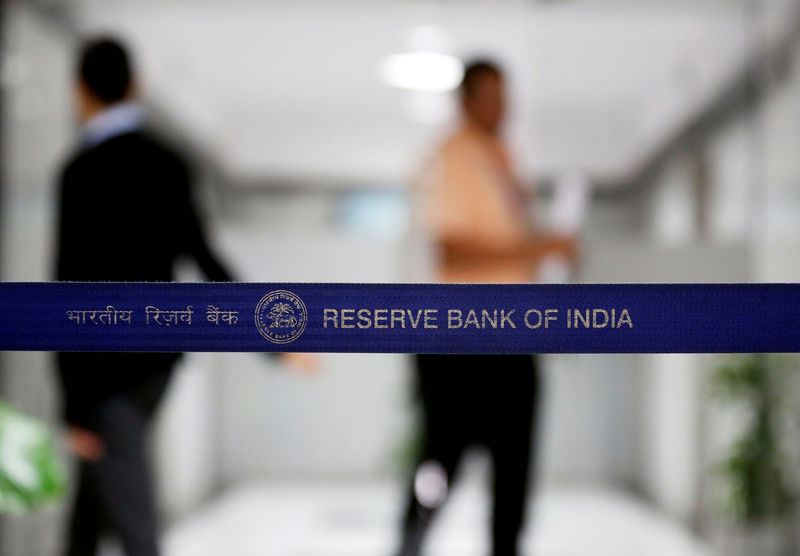By Suvashree Choudhury and Devidutta Tripathy
MUMBAI (Reuters) - The Indian central bank's move to cut off a key form of trade finance in the aftermath of a multi-billion dollar fraud could both dent the rupee and sharply raise costs for many importers, bankers and traders said.
The Reserve Bank of India announced late on Tuesday it was banning banks from issuing letters of undertaking, or LoUs, a form of credit guarantee often used between Indian banks and their offshore branches.
The central bank's latest regulatory clampdown came weeks after Punjab National Bank (NS:PNBK) uncovered a more than $2 billion scam involving the alleged fraudulent issue of such LoUs without the bank's knowledge.
Industry insiders warn the RBI's move will raise the cost of borrowing especially for small importers, slow the pace of imports, and likely weaken the rupee over the next three to four months, and lead to higher loan delinquencies.
Importers, already hurt by a sharp hike in import duties in February on goods ranging from iPhones to Zippo lighters and Ray-Bans to Fitbits, now face an even bigger setback, they warn.
"This kills small traders who are pledging property to get LoUs," said Kasim Sait, managing partner of Texim International, an importer of synthetic rubber, based in Chennai in southern India.
The RBI allowed banks to continue issuing letters of credit (LCs) - a more stringent, internationally recognized instrument, but one that comes with much higher fees.
While the gems and jewelry segment was the heaviest user of LoUs, every sector including metals, pharmaceuticals, and petroleum was likely to be hit, bankers said.
All these importers used to raise dollar funds against LoUs at 2.5 percent to 3 percent offshore, but this would go up to as much as 12 percent or more as companies would be forced to borrow from local banks in India, they said.
"It will definitely increase costs of funding," said Nikunj Turakhia, President of the Steel Users Federation of India.
WEAKER RUPEE
Others fear the RBI decision could make Indian exports less competitive and paralyze some companies that are already tapped out on their domestic borrowing limits.
And while using LoUs, commonly known as "buyer's credit", was straightforward, switching to letters of credit is more complex.
"The process for an importer has gone up drastically," said Sanjay Mandavia, a trade finance consultant based in western Indian city of Ahmedabad. "In a buyer's credit transaction, it would have been completed in 2-3 days, in this case it could take a month."
As letters of credit require greater involvement from both the exporter and its banks, he said this also resulted in higher courier charges, document charges, processing and interest costs.
"The impact will be seen in credit markets, corporate funding cost rising, dollar funding being substituted by rupee loans and imports coming down over the next three-four months," said Sajal Gupta, head of forex and rates at Edelweiss Securities, adding that every month $6 billion of LoUs were issued by Indian banks.
"There will be an additional $1 billion-$1.5 billion demand in the spot currency market every month as well as a sentiment impact which will keep the rupee exchange rate under pressure."
The rupee
